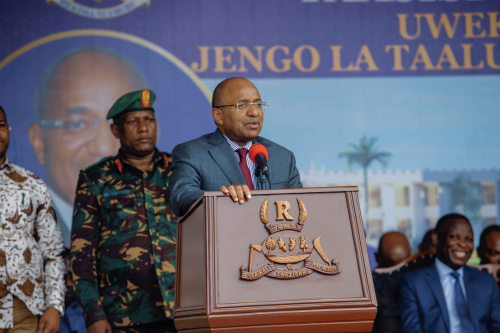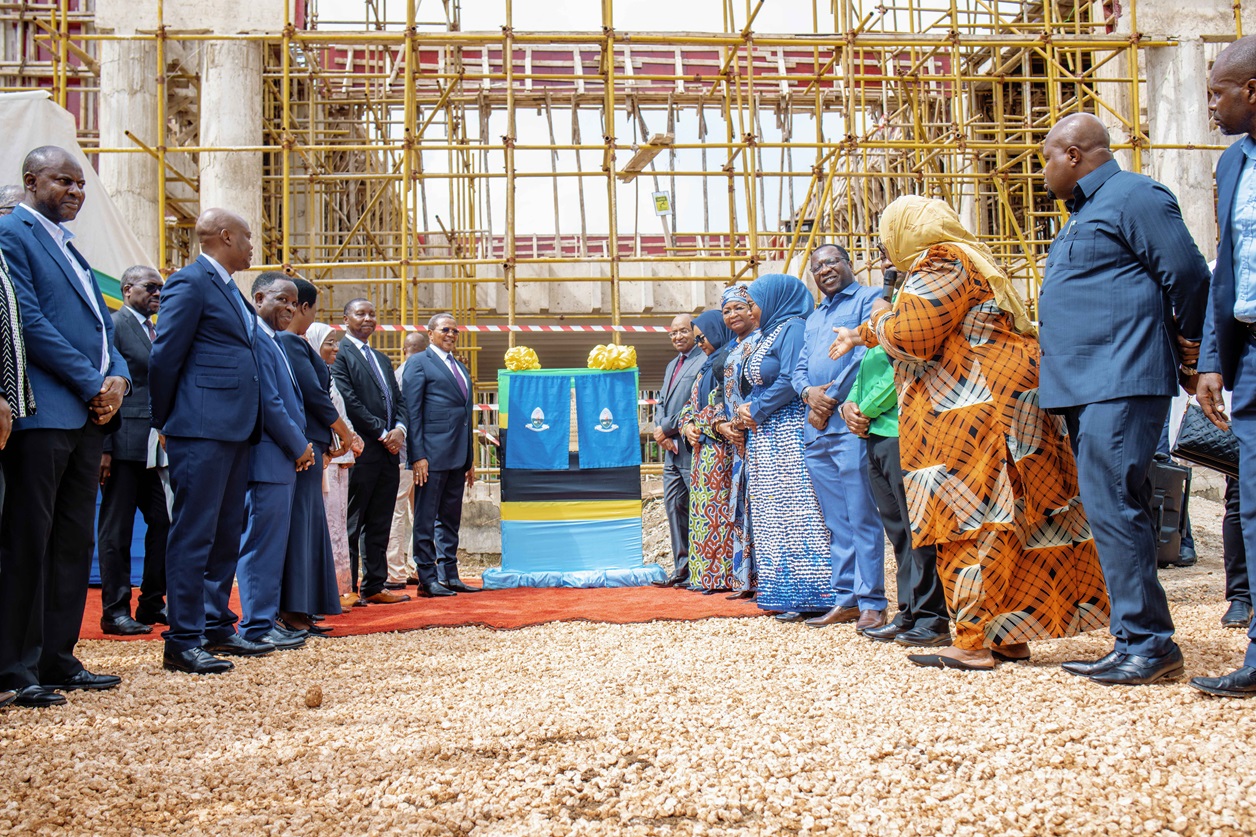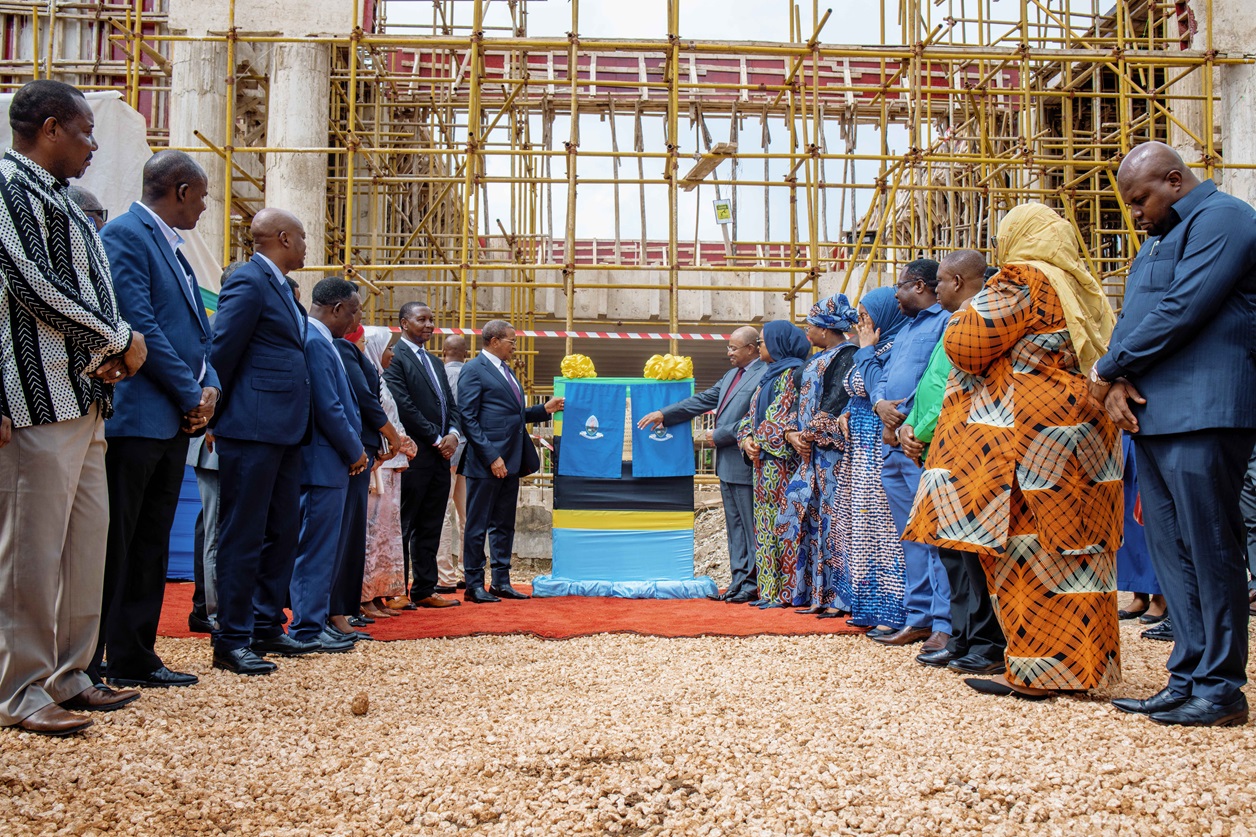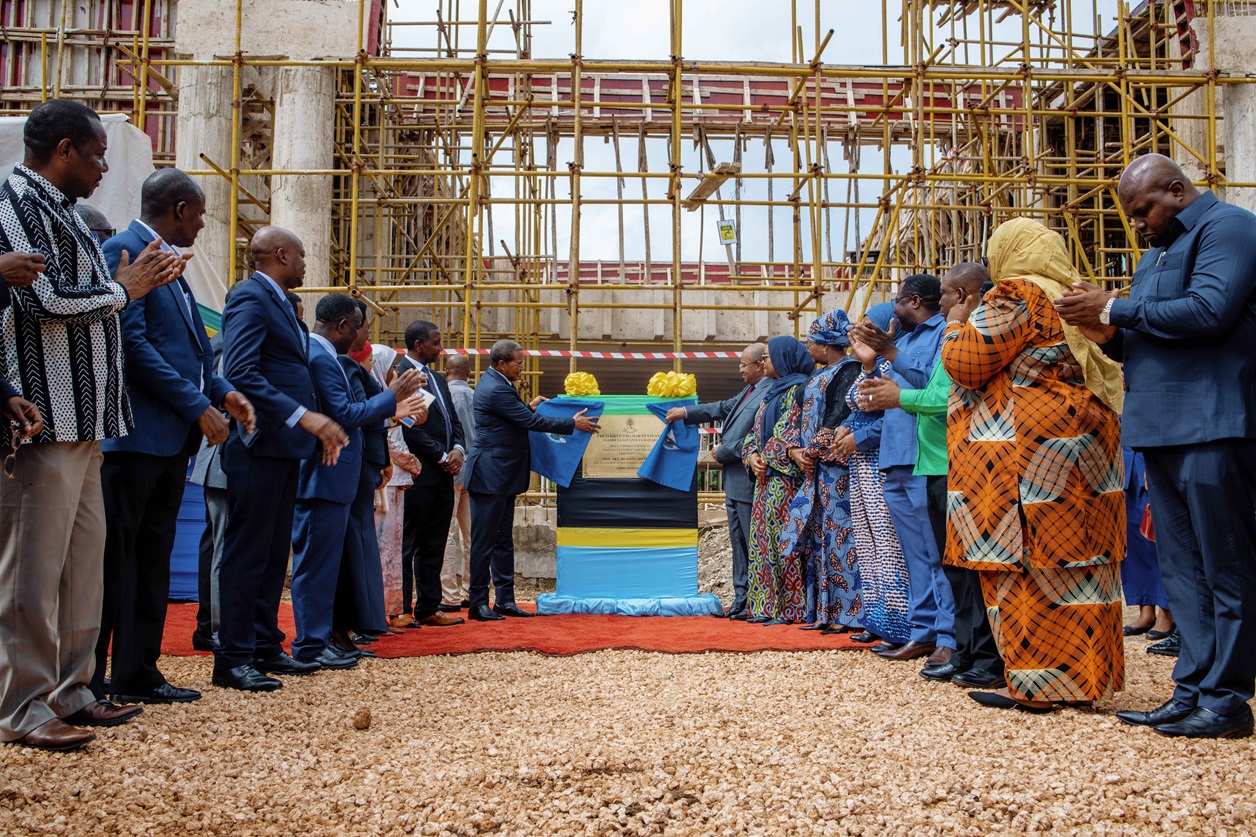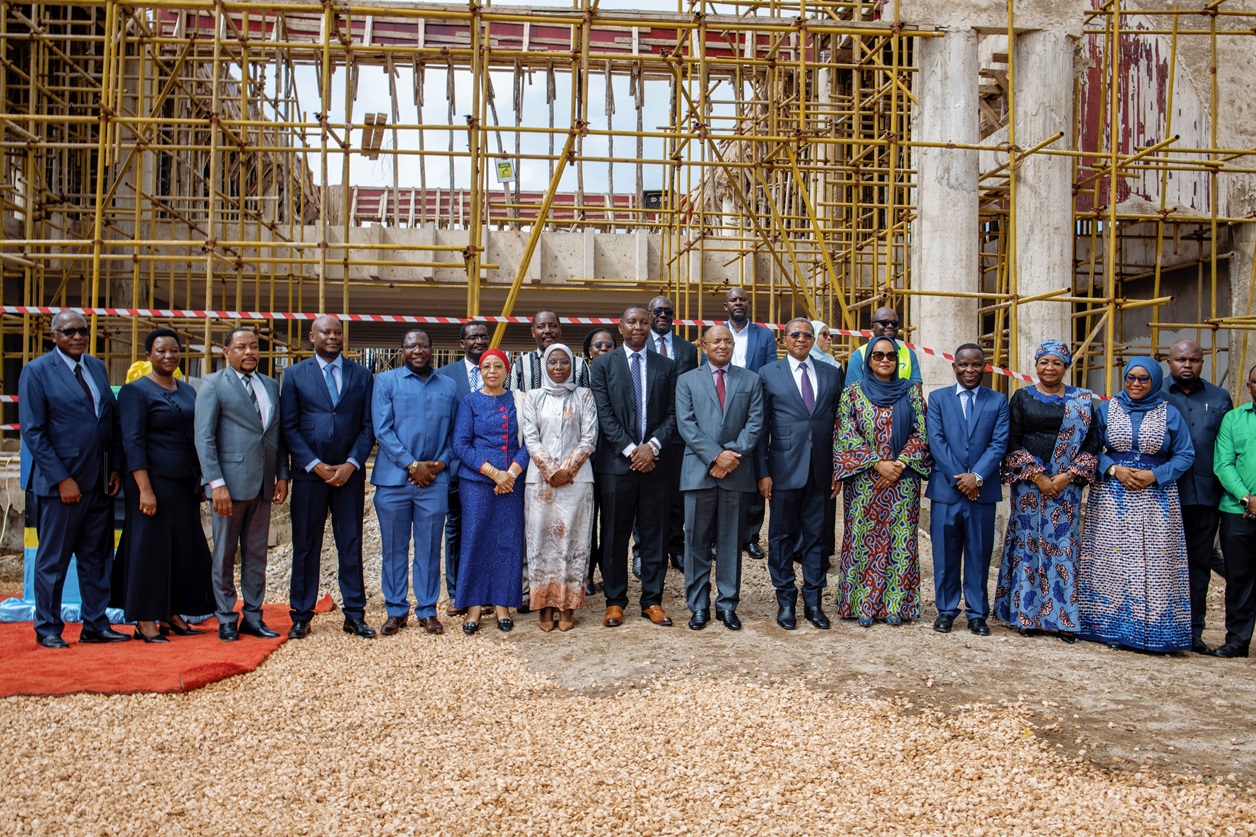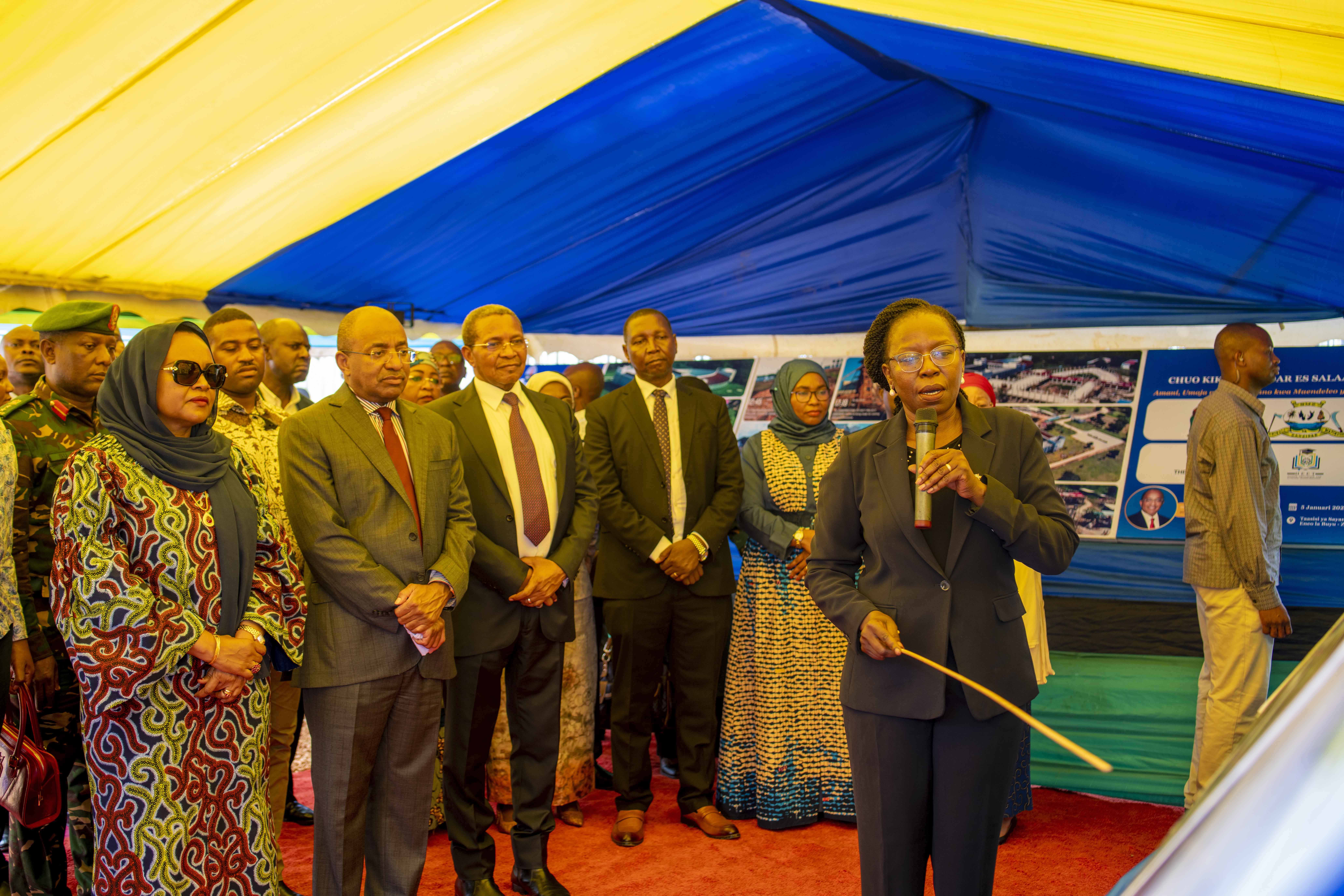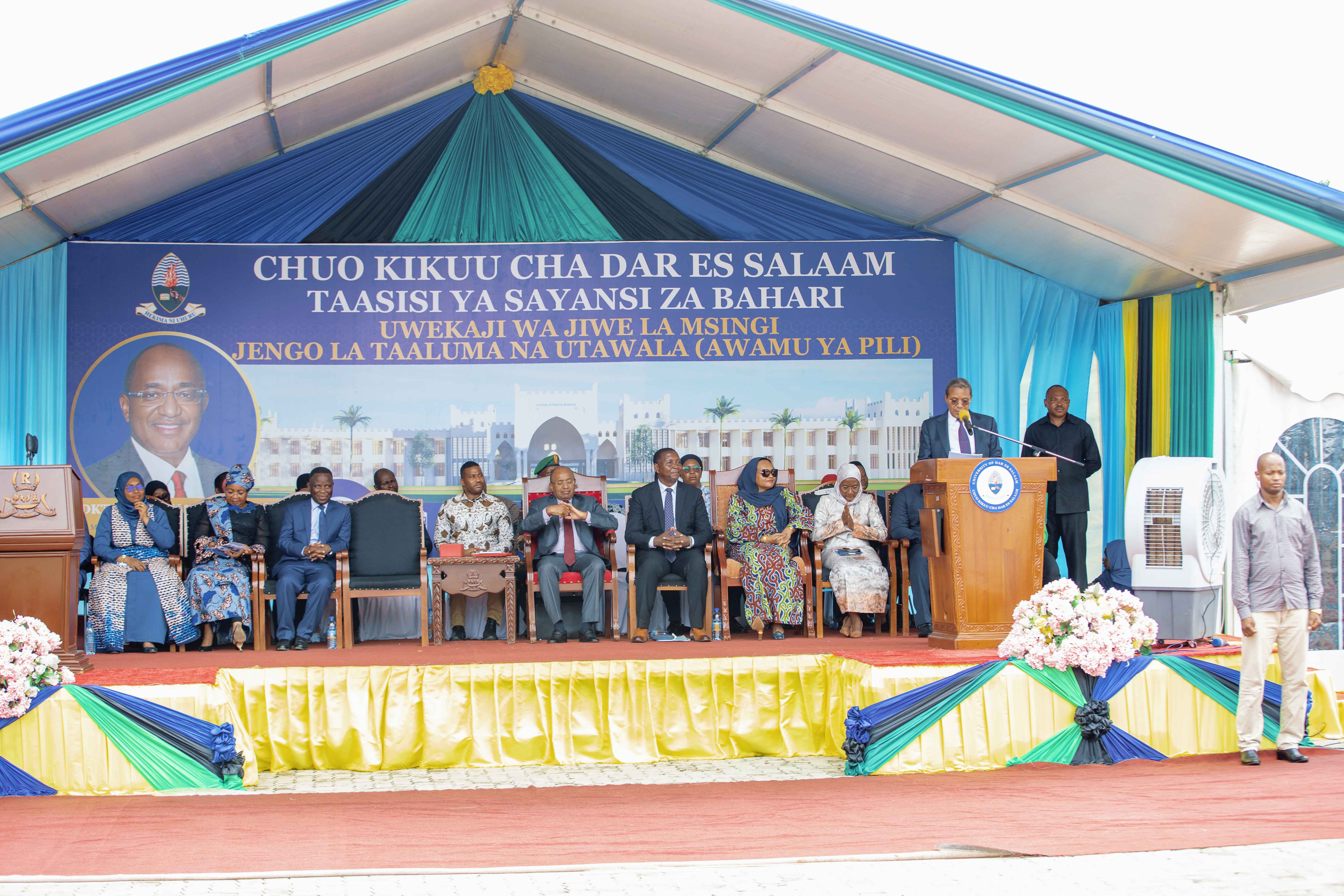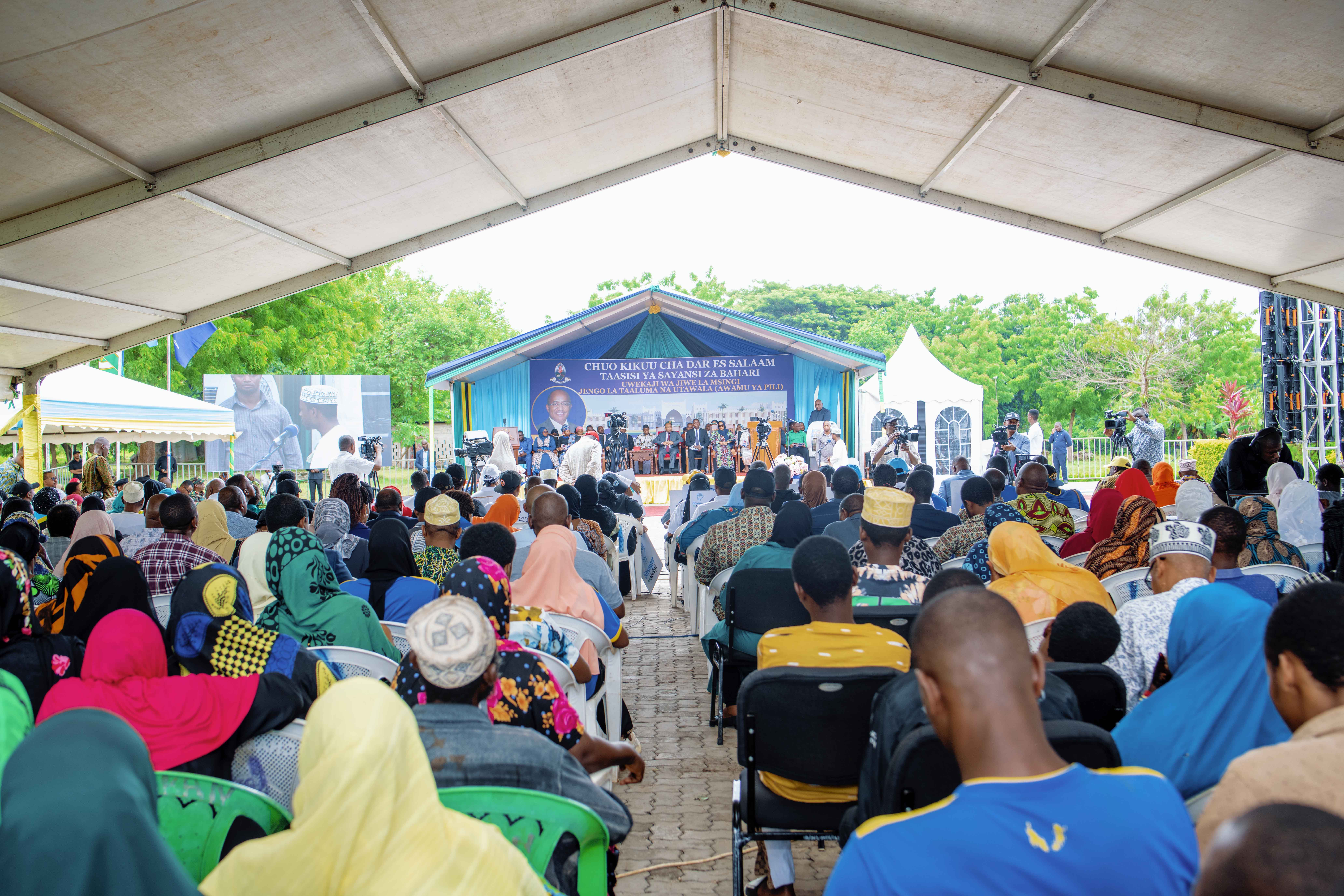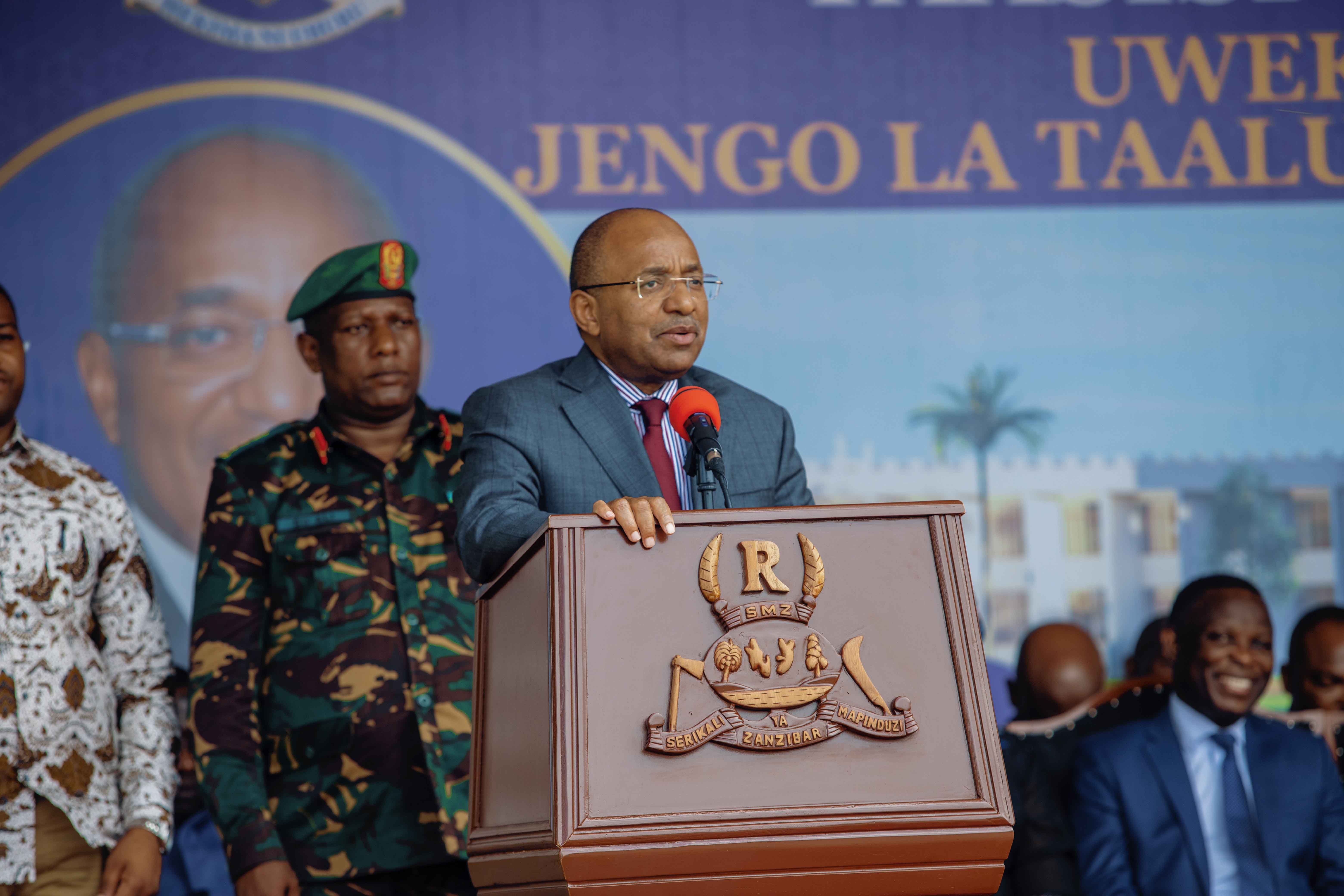News
President Mwinyi proclaims UDSM-IMS role in Blue Economy policy
By Jackson Isdory, CMU
The President of Zanzibar and Chairman of the Revolutionary Council, His Excellency Dr. Hussein Ali Mwinyi, has reaffirmed the Government’s audacious commitment to advancing its illustrious Blue Economy policy through scientific research and innovation.
President Mwinyi announced this during the foundation stone-laying ceremony for the new academic and administrative building at the Institute of Marine Sciences (IMS) of the University of Dar es Salaam on 5th January, 2025 at the Institute’s premises in Buyu, Zanzibar.
"Our primary policy focus is the blue economy which includes key sectors like tourism, fishing, and seaweed farming. This Institute of Marine Sciences is uniquely important as it will provide experts to drive these sectors forward”, said President Mwinyi.
He highlighted that the blue economy is the cornerstone of Zanzibar’s development strategy, encompassing tourism, fishing, and seaweed farming. He stressed that scientific research would be critical in ensuring evidence-based policies for sustainable development.
"We expect the Institute to deliver groundbreaking research to inform policies transforming our blue economy. We aim for scientifically driven policies to foster development and long-term benefits for our people," he added.
Gratitude to visionary leadership
At this event, UDSM Chancellor and Former President of the United Republic of Tanzania H.E. Dr. Jakaya Kikwete, expressed gratitude to the Tanzanian and Zanzibar Governments for facilitating the construction of the IMS facility.
The facility is being constructed under the Higher Education for Economic Transformation (HEET) Project, funded by the Government of the United Republic of Tanzania through a soft loan from the World Bank.
“This milestone would not have been achieved without H.E. President Samia Suluhu Hassan’s decision to include IMS in the HEET project. It required much effort and discussions, but President Samia assured me the Institute would be included,” said Kikwete.
He stressed that the World Bank requires proper documentation for land ownership before releasing construction funds. “I sincerely appreciate your efforts, Your Excellency President Mwinyi, for your wise decision to authorise the title deed for the land in Buyu”, he said.
Former President Kikwete explained that title deed is a prerequisite for the World Bank's funding approval. He also thanked President Mwinyi “for ensuring the road to this Institute is entirely constructed, benefiting IMS and much to the neighbouring society”.
Expanding access to higher education
The Minister for Education, Science, and Technology, Hon. Prof. Adolf Mkenda, highlighted that 16 new campuses are being constructed across Tanzania under the HEET project to bring higher education closer to the people.
He urged universities to offer degree programmes focusing on employability and skill development to address youth unemployment.
Meanwhile, Zanzibar’s Minister for Education and Vocational Training, Hon. Lela Muhamed Mussa, stated that the curriculum at all levels, from primary to secondary schools, was aligned to equip students with the qualifications needed for marine sciences and fisheries studies.
“We aim to ensure local youth have the skills to engage in economic activities related to the ocean. For instance, children born in areas like Kojani and Tumbatu already have fishing skills; our focus is to enhance their academic knowledge and professionalism”, she said.
Additionally, Zanzibar’s Minister for Blue Economy and Fisheries, Hon. Shaaban Ali Othman, stressed the University’s role in providing innovative solutions and evidence-based policies to propel Zanzibar’s development.
“We much need this institute not only for human resources but rather for research and innovative ideas that lead us through”, said Hon. Othman.
Enhancing Research and Capacity
UDSM Vice Chancellor Prof. William A. L. Anangisye explained that IMS expansion will significantly increase enrollment capacity from 140 to 300 students. The new facilities will also strengthen the Institute's ability to conduct cutting-edge research and provide expert advice in blue economy and marine sciences.
"With 50% of construction already completed and 4.2 billion TZS disbursed to the contractor, we are on track to finish the project on time. We are determined to complete the project on time so its benefits can materialise. This milestone will enable the institute to contribute to national and regional development”, said Prof. Anangisye.
The World Bank Resident Representative Mr. Martin Kachingwe commended the government for its commitment to education and development and stressed the importance of collaboration between governments, universities, and stakeholders.
"The HEET project aims to make education accessible, especially to marginalised communities. This project enhances Universities like UDSM to provide education, research or innovations that transform the national economy. We believe these investments will empower students for a brighter future”, said Mr. Kachingwe.
Through research, capacity development, and fostering collaborations, UDSM has contributed significantly to addressing the challenges and tapping into the potential of Tanzania's fisheries and aquaculture sector. This initiative underscores Zanzibar’s and Tanzania’s commitment to sustainably leveraging marine resources to drive social and economic development through science, education, and policy.
Other News
Sun, 05.Jan.2025 : Ministry of Blue Economy, UDSM in key conversations ahead of historic Foundation Stone laying at IMSFri, 20.Dec.2024 : ALAF Limited yatoa ufadhili wa masomo ya Umahiri katika Kiswahili kwa wanafunzi wa UDSM
Thu, 19.Dec.2024 : UDSM Herbarium: an invaluable resource fostering conservation, plant taxonomy and ecology
Sat, 14.Dec.2024 : Tracer study findings stress on curriculum to meet national human resource needs
Sat, 14.Dec.2024 : Prof. Mushi calls for ethical and inclusive innovation as Africa higher education leverages AI
Fri, 13.Dec.2024 : UDSM kuwa kituo cha utafiti wa Sayansi ya Bahari barani Afrika
Fri, 13.Dec.2024 : Multi-billion Sida funds to boost research on sustainable development at UDSM
Fri, 06.Dec.2024 : University of Bradford offers honorary degree to Prof. Ichumbaki for impactful research, community engagement


